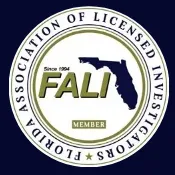Insurance Claims Investigations
Insurance fraud costs billions annually and drives up premiums for everyone. Our investigative team helps insurers, businesses, and attorneys verify the legitimacy of claims—saving money, safeguarding reputations, and ensuring justice is served.

Exposing Fraud, Protecting Your Bottom Line.
According to the Coalition Against Insurance Fraud, false claims cost about $80 billion every year. From staged accidents to exaggerated property damage, fraudulent claims can harm businesses and inflate insurance costs.
Our investigations focus on gathering irrefutable evidence through scene inspections, interviews, background checks, and surveillance. We handle a wide range of cases including car accidents, workplace injuries, property damage, healthcare fraud, and disability claims. Every investigation is tailored to the specific type of claim to ensure we uncover the facts and present them clearly.
From Initial Report to
Final Decision
Claim Review
Understand details, gather initial documentation
Evidence Collection
Photos, video, and physical inspections
Interviews
Claimants, witnesses, and relevant parties
Verification
Background and asset checks
Specialist Input
Fire investigators, medical experts, accident reconstructionists
Reporting
Detailed findings for insurer or legal team
Why Our Investigations Matter
What We Do:
✅ Investigate workers’ compensation, personal injury, property damage, and healthcare claims
✅ Gather and analyze physical, documentary, and testimonial evidence
✅ Work closely with insurers, attorneys, and businesses to verify legitimacy
Why It Matters:
✅ Detects fraudulent or inflated claims before costly payouts
✅ Protects policyholders from increased premiums
✅ Provides clear evidence to support claim approvals or denials
How We Deliver:
✅ Accident scene photography and diagrams
✅ Witness location and interviews
✅ Surveillance and activity checks
✅ Expert analysis for fire, vehicle, or medical claims

Frequently Asked Questions
What types of services do you offer?
We provide comprehensive protective security, investigative intelligence, and due diligence services. This includes executive protection, rapid response teams, corporate investigations, fraud detection, asset tracing, and government contract security operations.
How quickly can services be deployed?
Our Rapid Response Teams can mobilize within 24 hours nationwide. For investigative and due diligence cases, timelines vary depending on scope, jurisdiction, and required clearances.
Are your teams certified and licensed?
Yes. All AF1 Security personnel are fully licensed, insured, and, where required, federally certified. Many are former law enforcement or military professionals with advanced protective training.
Do you work with government agencies?
Yes. We hold GSA contracts and have worked with agencies including DHS, FBI, ATF, and more. Our protocols meet or exceed all federal compliance requirements.
Can services be customized for private clients?
Absolutely. Whether you need discreet personal protection, residential security, or a targeted investigation, we tailor our solutions to your specific needs and privacy requirements.
Is my information kept confidential?
Yes. All cases are handled with strict confidentiality. NDAs and secure communication channels are standard for sensitive matters.
Do you operate internationally?
Yes. Our due diligence and investigative divisions have capabilities in 17+ countries, supported by vetted local partners and global intelligence resources.
What is your process for new clients?
We begin with a secure consultation to understand your needs, followed by a tailored service proposal. Once approved, our team deploys according to the agreed plan, maintaining clear communication and progress reporting throughout the engagement.
Our Happy Clients!
In the competitive world of due diligence services, Due Diligence Specialist consistently provides high quality and comprehensive reports. I regularly recommend Due Diligence Specialist to compliance professionals who need professional, cost-effective, and timely, due diligence investigations around the globe. Due Diligence Specialist representatives are responsive and solution oriented to meet the client’s needs.

As a construction and surety attorney, it is essential for me to work with investigative professionals who operate with precision and discretion. I retained AF1 Protective Agency and their Due Diligence Specialist division to locate a critical individual involved in a complex dispute. Their team delivered actionable results swiftly, using legally compliant methods that upheld evidentiary standards. I was impressed with their professionalism, responsiveness, and accuracy. I would not hesitate to retain them again or recommend their services to other legal professionals

I engaged AF1 Protective Agency’s Due Diligence Specialist division to support a complex post-sale dispute involving undisclosed financial gains. The sellers had withheld critical asset disclosures during the business transaction, and my client needed to assess recovery options. AF1’s investigative team conducted a comprehensive asset search that uncovered material financial activity benefiting the new ownership, activity that had been intentionally concealed. Their findings were timely, thorough, and court-ready, which gave my client critical leverage during litigation. I trust AF1 and recommend them for any attorney needing discreet, high-impact financial investigation.

Following the signing of a Letter of Intent by our buyer, we engaged AF1 Protective Agency’s Due Diligence Specialist division to perform a full-scale investigative review prior to closing on the acquisition of a manufacturing facility. Their team led a multidimensional due diligence operation covering legal standing, financial health, regulatory compliance, operational risk, and executive background checks on the CEO, CFO, and CTO of the target company. They also assessed the regulatory landscape related to the planned conversion of the facility from a bottling operation to a gummy supplement manufacturer. Their thorough reporting and investigative insights were invaluable in guiding our client’s negotiation and risk analysis. AF1 has become our go-to resource for all acquisition-related due diligence.

When one of my longstanding clients was unexpectedly denied re-entry into the U.S. despite prior visa approvals, I turned to AF1 Protective Agency’s Due Diligence Specialist division for a comprehensive background investigation. Their team conducted a multi-jurisdictional criminal records search, covering the client’s country of origin, INTERPOL alerts, and U.S. domestic databases. Their findings conclusively established that the client had no prior or current criminal record, which helped support our immigration appeal. The professionalism, discretion, and speed with which AF1 handled this sensitive matter were outstanding. Their work was pivotal to advancing our client’s legal standing.

We engaged AF1 Protective Agency’s Due Diligence Specialist division to conduct a comprehensive background investigation on a candidate for an associate attorney position. Their screening covered educational credentials, employment verification, professional licensing, litigation history, and criminal background, domestic and international. The report was detailed, well-organized, and delivered promptly, which helped inform our hiring decision with confidence. In a field where reputational risk is everything, AF1’s discretion and thoroughness were deeply appreciated.

Protect Your Claims Process from Fraud.
Partner with AF1 to ensure every claim is backed by truth and hard evidence.

License A3000166
License B1700251
AF1 Security delivers private and government clients rapid, certified, and intelligent protective services with a national reach.
FOLLOW US
COMPANY
SERVICES




© 2025. AF1 Protective Agency. All Rights Reserved.


